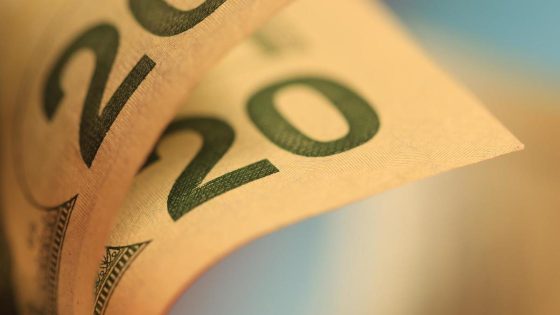Social media posts claim Walt Disney and four others, including occult practitioners and a former Nazi party member, are the “founders” of the National Aeronautics and Space Administration (NASA). This is misleading; while two of the people on the list were scientists involved in rocket development — one of whom played a prominent role in the early space program — the agency was created by an act of Congress and established by former president Dwight Eisenhower.
A post shared May 10, 2024 on Facebook includes five photos that purportedly show the “Founders of NASA.” Among them: Disney, “Ronald Hubbard, Founder of Scientology,” “Wernher Von Braun, Ex Nazi,” “Jack Parsons, Themelite occultist,” and “Aleister Crowley, Wickedest man in world.”
Similar posts spread on Instagram, X, Reddit and TikTok, some dating back several years.
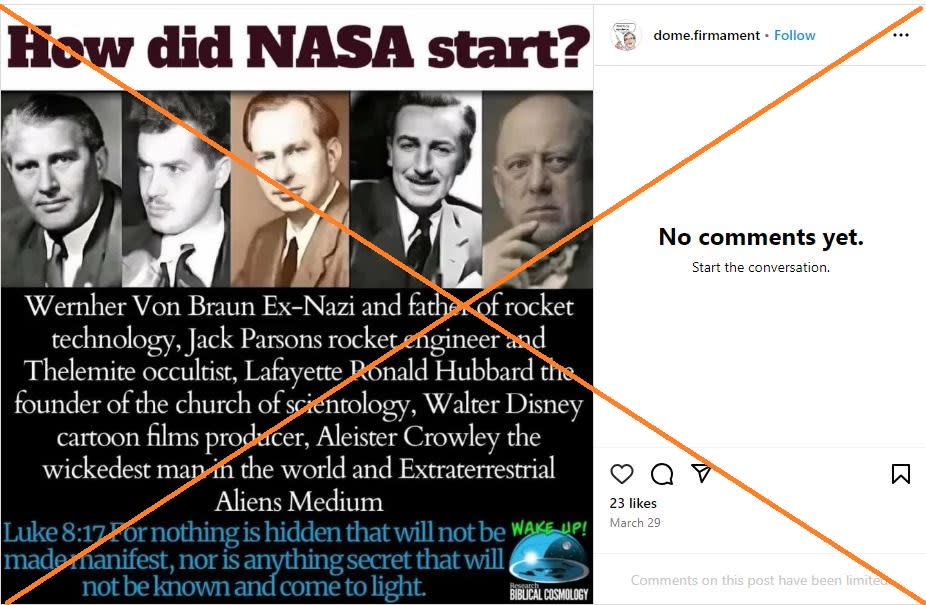
While some of the men on the list had a connection to the early American space program, claims that they founded NASA are inaccurate.
The National Aeronautics and Space Act created the agency in 1958 (archived here). Eisenhower appointed T. Keith Glennan as its first administrator (archived here) as the United States moved to respond to the Soviet Sputnik program.
“On the most basic level, NASA was founded by the US government, not by a group of people,” Teasel Muir-Harmony, curator of the Project Apollo collection at the Smithsonian National Air and Space Museum (archived here), told AFP on May 20, 2024.
The science and technology historian added that NASA has recognized former president Lyndon Johnson, congressional researcher Eileen Galloway and numerous others for their contributions to the program (archived here and here).
AFP examined the role of each person named in the posts.
Von Braun
At the end of World War II, the United States recruited more than 100 German scientists, including von Braun, to work on ballistic missiles and related research in a program called Project Paperclip (archived here). Some ended up in the space program.
Von Braun was a member of the National Advisory Committee for Aeronautics (NACA) Special Committee on Space Technology (archived here), which laid the groundwork for NASA.
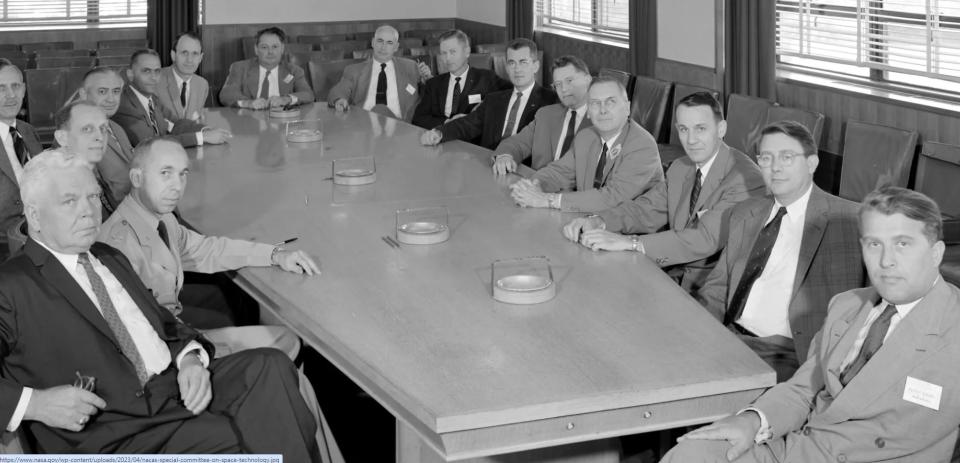
NASA
Before the United States recruited him, von Braun joined the Nazi party in 1937, becoming an officer of the feared paramilitary Schutzstaffel (SS). A key architect of Germany’s V-2 rocket under Adolf Hitler, von Braun later became director of NASA’s Marshall Space Flight Center and chief architect of the Saturn V launch vehicle that would propel Americans to the Moon.
The German scientist “was a very important figure in the history of space exploration in the United States,” Muir-Harmony said.
“He had influence and input in conversations on what NASA should look like. He was also influential in the decision to send humans to the Moon.”
Disney
Disney, the animator who created Mickey Mouse and a company that became an entertainment empire, had no direct involvement in the US space program. However, his “Tomorrowland” TV programs helped popularize the idea of space travel at a time when the United States and the Soviet Union were locked in a race for space supremacy.
Disney produced three “science factual” shows in the mid-1950s that included von Braun as a narrator and depicted future space travel (archived here). According to the Disney Family Museum, Eisenhower requested the first program, “Man in Space,” be screened at the Pentagon as “an education space primer.”
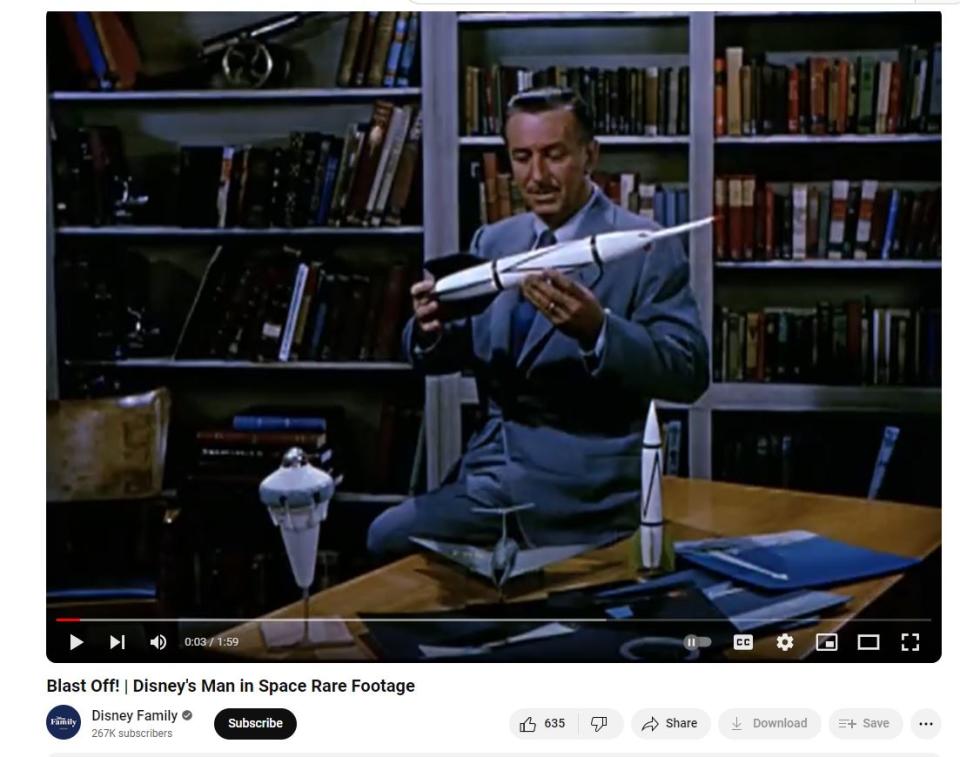
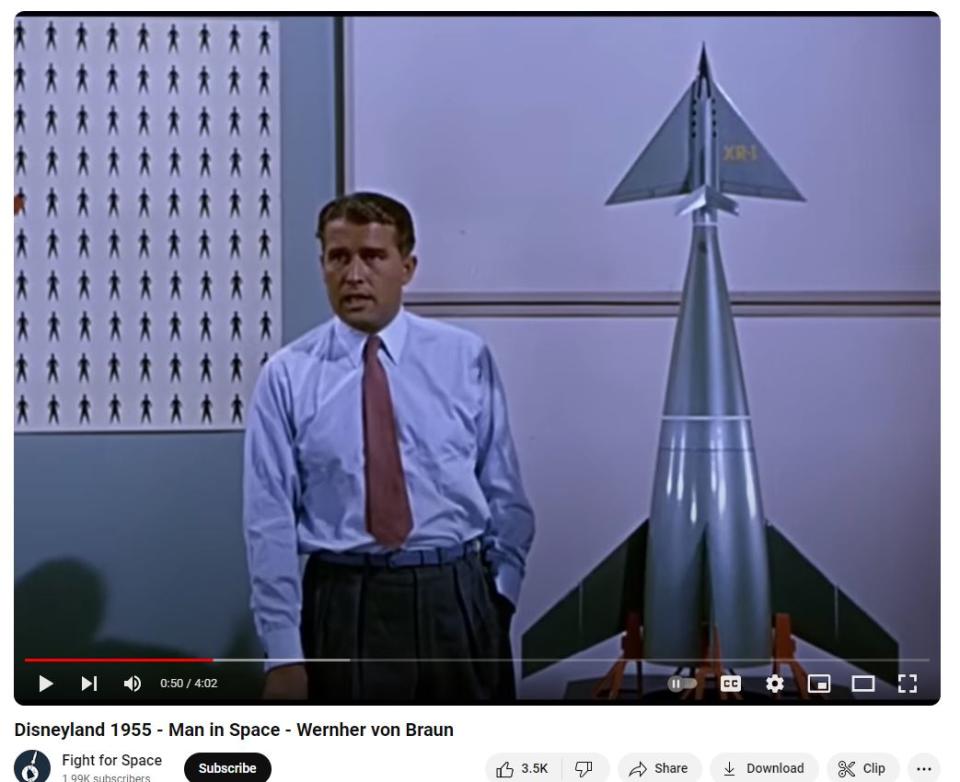
Muir-Harmoney said Disney played a role in building public support, “but he was not involved in the early space program” other than giving von Braun a “platform.”
Parsons, Hubbard and Crowley
Parsons was a graduate student at the California Institute of Technology and helped develop solid-fuel rocket technology that was later used in the US space program. After the first experiment in 1936, Parsons co-founded the school’s Jet Propulsion Laboratory, now funded by NASA (archived here).
While Parsons was involved in early rocketry experiments, “he definitely could not be considered a founder of NASA,” Muir-Harmony said.
Parsons died in an explosion in 1952 — years before the agency’s creation. He also was no longer associated with the Jet Propulsion Laboratory, according to an account by science historian William Ashworth at the University of Missouri-Kansas City.
Ashworth wrote that Parsons’s legacy was marred by his following of Crowley, a Thelemite occult leader, and subsequent association with L. Ron Hubbard, a science fiction writer who later founded the Church of Scientology.
Muir-Harmony said she is unaware of any role that Crowley and Hubbard played in the US space program, aside from their relationship with Parsons. AFP found no evidence connecting the men to NASA.
AFP contacted the agency for additional comment, but no response was forthcoming.
Source Agencies

